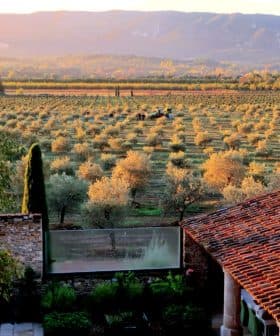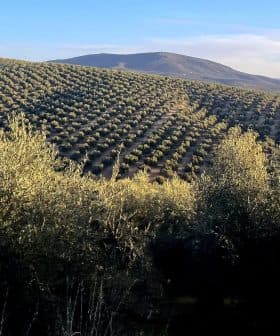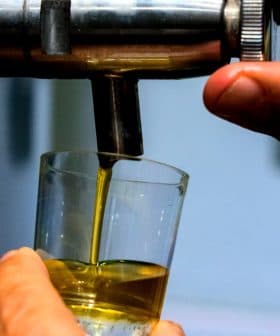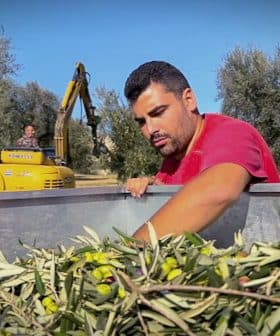Olive Sector Key to Andalusian Circular Economy Plan
The Andalusian regional government has published a new five-year plan focusing on creating a circular agri-food economy with a specific emphasis on the olive sector, aiming to transition the region’s agri-food sector into a sustainable, circular, and bio-based economy. The plan includes initiatives such as the Oleacirc project, GASOLIVE, and the ORULAND project, which aim to improve environmental sustainability, reduce waste, and increase profitability in the olive industry, while also promoting collaboration between olive oil producers and industrial entities to shift towards a circular production model.
The Andalusian regional government has published its new five-year plan for creating a circular agri-food economy in which the olive sector plays a pivotal role.
The “Action Plan for the Circular Bioeconomy in the Agri-Food Value Chain 2025 – 2030” is intended to serve as a roadmap for transitioning Andalusia’s agri-food sector into a sustainable, circular and bio-based economy.
Grounded in European policy and regional legislative frameworks, it focuses on scaling biomass resource use, boosting rural economies and enhancing food system sustainability.
See Also:As U.S. Firms Back Off Climate Targets, Olive Oil Companies Stay the Course“The Covid-19 pandemic highlighted the interdependence of global value chains and the need to accelerate the transition to a cleaner, more digital and resilient economic and industrial model,” the Andalusian government wrote.
“The repercussions of the war in Ukraine on energy and food markets have led the European Union to seek alternatives and diversify its sources of supply,” it added. “The transition to cleaner energy, driven by the need to combat climate change and reduce dependence on fossil fuels, is also one of the initiatives led by the E.U., which translates into encouraging investment in green and sustainable technologies.”
The plan places significant emphasis on the olive sector, recognizing its economic, cultural and environmental importance to the region.
Integrating Strategic Objective 6 of the “Andalusian Strategy for the Olive Sector,” approved in February, the plan’s measures include promoting the “bio-based value chain” of olive products, supporting projects that develop new uses for olive-derived residues, such as the Oleacirc project, and fostering a culture of sustainability within the sector.
The Oleacirc project focuses on the business development of successful initiatives in the field of olive byproduct exploitation. Its goal is to improve the sector’s environmental and economic sustainability by identifying feasible business models and scaling up successful technical approaches.
Other projects supported by the plan include GASOLIVE, which focuses on the potential of gasification technologies to convert olive residues into energy and organic fertilizers, and the ORULAND project, which complements it by aiming to reduce waste and emissions from olive oil production processes.
All three projects aim to help olive producers comply with environmental regulations while turning waste streams into profitable resources. As government-led initiatives, the results obtained will also be used to support official decision-making, both at the business and policy implementation levels, to improve the sustainability of the Andalusian olive oil sector.
One of the highlighted objectives of the plan is to stimulate the olive sector’s overall participation in the value chain. This involves facilitating collaborations between olive oil producers and industrial entities that can process subproducts into energy, fertilizers or materials.
See Also:Researchers Transform Olive Grove Waste Into BioplasticThis measure is designed to shift the sector from a linear production model to one in which waste becomes input, thus multiplying the economic impact of the olive industry while reducing its environmental impact.
Another priority is promoting new projects that leverage circular practices. These include the development of new technologies for separating, processing and converting olive waste into commercially viable products.
This is to be supported by incentives for pilot initiatives, technological adoption and the commercialization of bio-based outputs.
Incentivizing the adoption of more sustainable practices is seen as key to the plan’s success. “One of the mechanisms is to take advantage of innovation opportunities and new opportunities for complementary sources of income,” the Andalusian government wrote.
The plan also includes specific communication and public engagement measures aimed at raising awareness within the olive sector about the opportunities of a circular bioeconomy.
These measures involve creating tailored communication strategies and educational materials to encourage participation, disseminating successful case studies and integrating sustainability into the sector’s culture and business ethos.
The plan also proposes establishing a regional platform to connect actors across the olive value chain and increase cohesion among producers, processors, researchers, investors, and policymakers.
A large number of government departments and working groups are already formally linked in this regard. Still, the strategy aims to dramatically increase participation from the private sector, as well as public-private partnerships.









